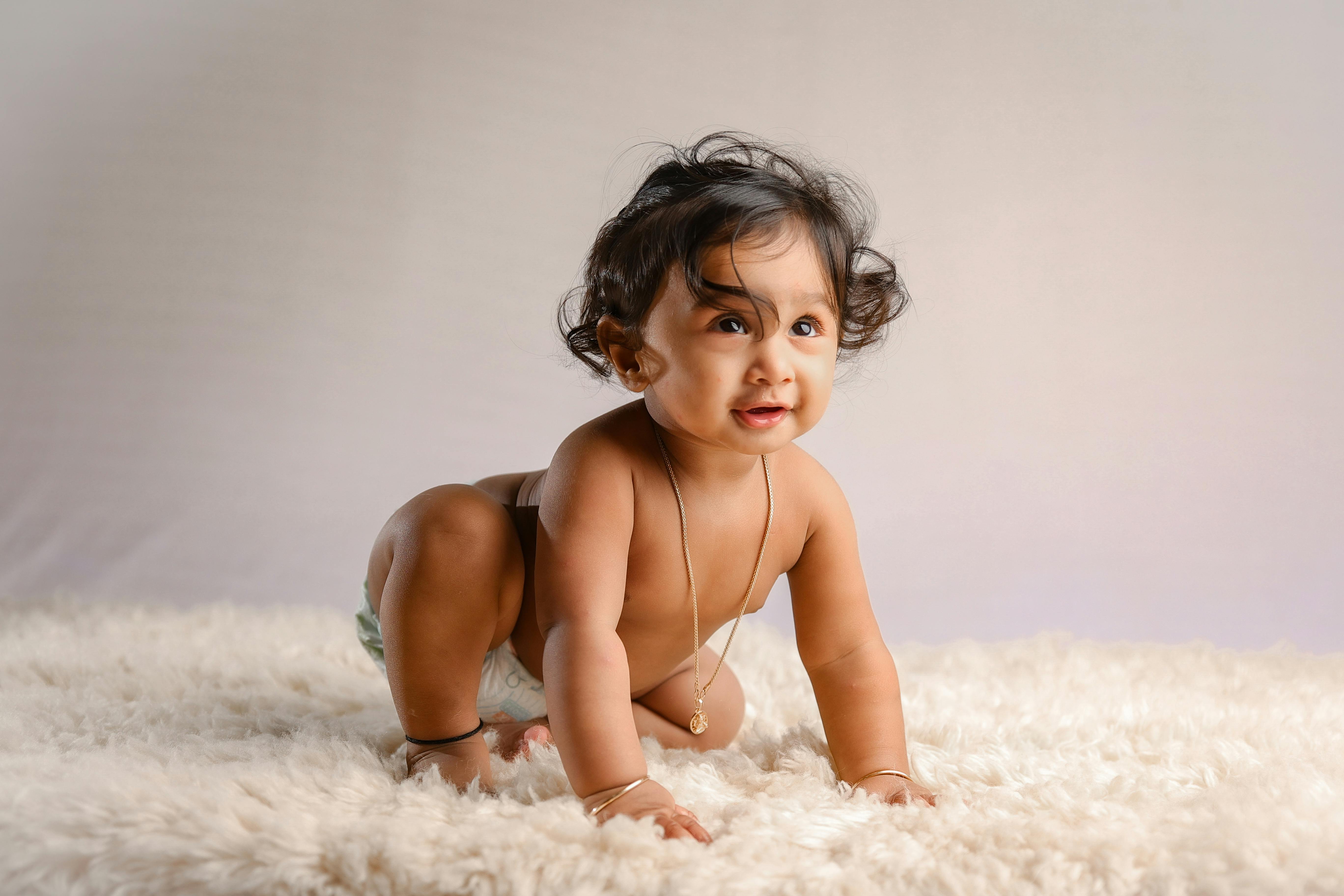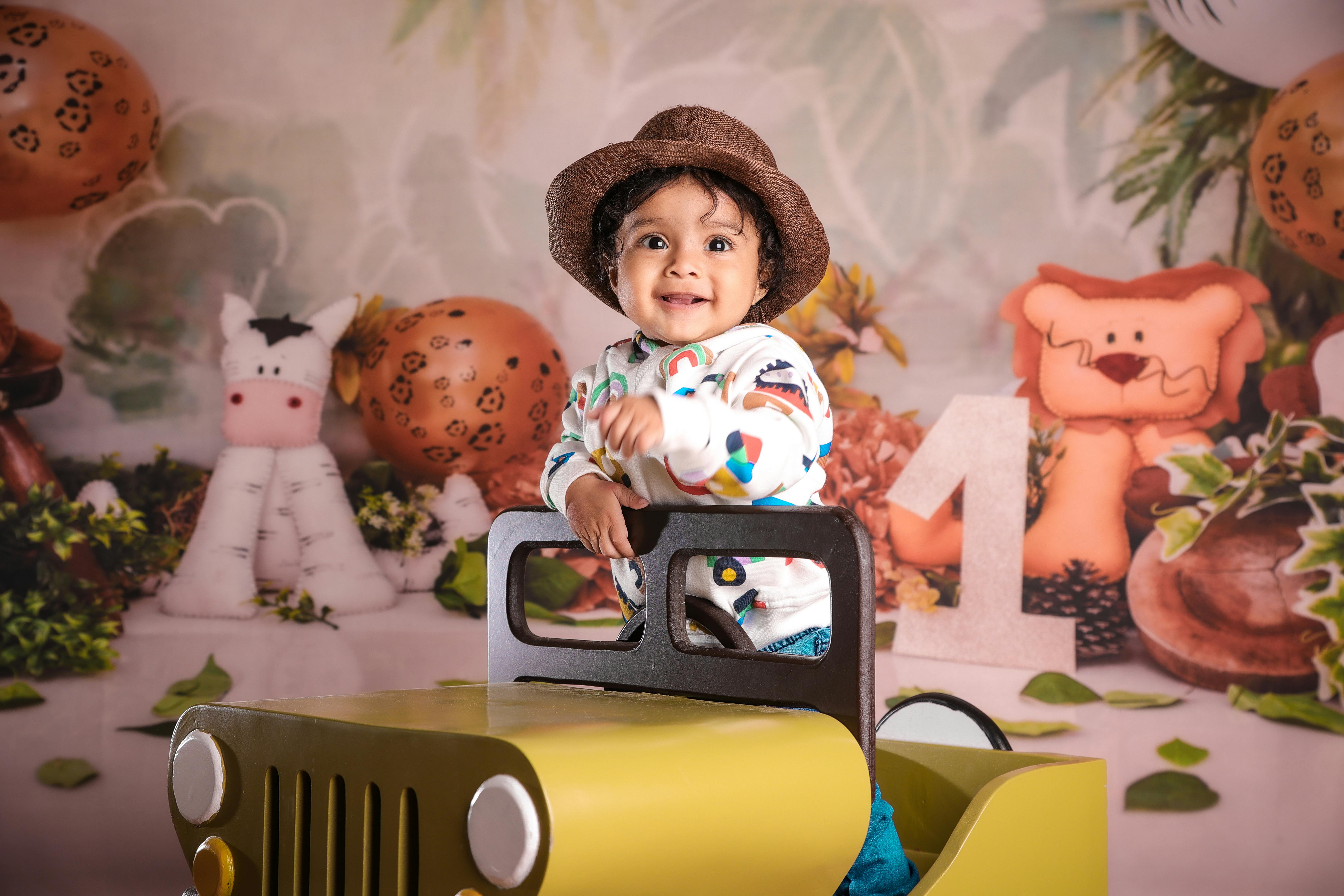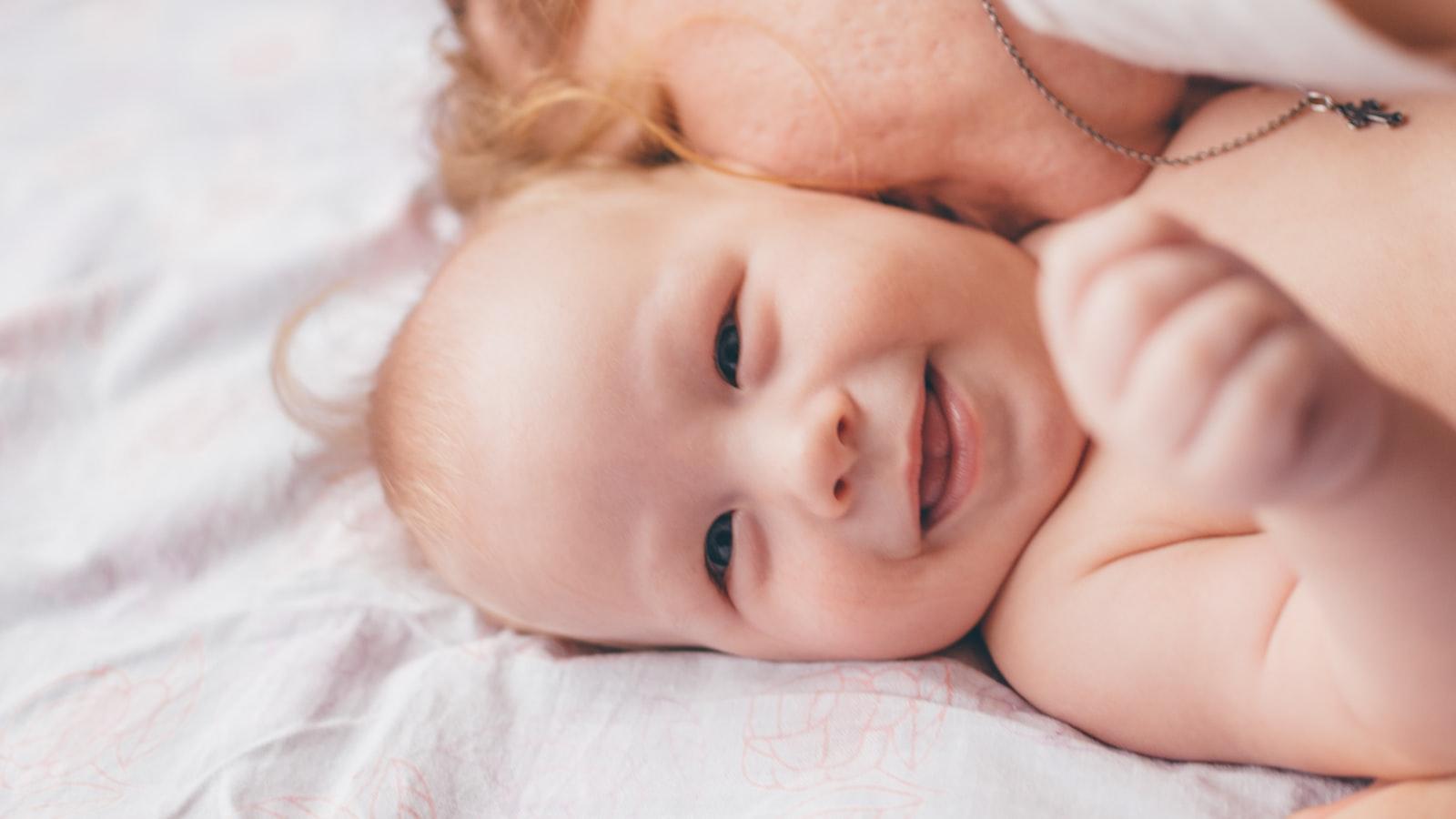Understanding why babies hit can be a difficult and frustrating experience for parents. Babies are too young to communicate in words and sometimes resort to hitting as a way of expressing their needs or feelings. This behavior is natural and normal, but it can be difficult to handle. In this article, we’ll discuss some of the common reasons why babies hit and how to respond in a way that helps your baby learn appropriate behavior.Babies hit for a variety of reasons. They may hit to express frustration, anger, or excitement. They may also hit to get attention or explore their own physical abilities. In some cases, babies may hit because they are trying to self-soothe or communicate a need that is not being met. Additionally, hitting can be a sign of boredom or fatigue in babies.
How to Respond to a Baby Hitting
Babies and toddlers can often express their emotions through physical contact, such as hitting. While it can be frustrating for caregivers, it is important to remember that this behavior is normal and should be addressed in a calm and understanding manner. Here are some tips on how to respond when your baby or toddler is hitting.
Stay Calm:
It can be tempting to yell or get angry when your child hits, but doing so will only increase the child’s agitation and could lead to more aggressive behavior. Instead, take a deep breath and try your best to remain calm. This will help your child understand that their behavior is not acceptable without having them feel attacked or misunderstood.
Redirect Their Attention:
If possible, try to distract your child from the situation with something else. Offer them an activity they are interested in or a toy they may want to play with in order to take their mind off of the feeling of frustration they may be experiencing.
Address the Behavior:
When your child has calmed down, it is important to address their behavior in an appropriate manner. Explain that hitting is not acceptable and that there are other ways they can express their emotions such as talking about how they feel or using their words instead of physical contact. It may also help to role-play different scenarios with them in order for them to better understand how they should react in certain situations.
Provide Comfort:
After you have addressed the inappropriate behavior, it is important to provide comfort for your child. Give them a hug and let them know that you love them and are there for them no matter what happens. This will help make sure that your child feels safe and secure despite any negative emotions they may have experienced during the incident.
What Happens When Babies are Repeatedly Hit?
When babies are repeatedly hit, it can have a lasting and damaging effect on their physical, emotional, and mental health. Physical effects of repeated hitting can include bruises, broken bones, and even head trauma. Emotionally, babies may become withdrawn or fearful of others. They may also become more aggressive or have difficulty connecting with people. Mentally, babies may experience difficulty concentrating or suffer from depression. In extreme cases, babies who are repeatedly hit may develop post-traumatic stress disorder (PTSD).
Research has shown that when babies are repeatedly hit, they are more likely to experience negative consequences throughout their lives. For example, they may struggle academically due to cognitive impairments caused by the trauma of being hit. They may also have difficulty forming healthy relationships due to a lack of trust in others. Additionally, those who were subjected to repeated hitting as a baby may be more likely to engage in aggressive behavior as an adult.
The best way to protect babies from the damaging effects of being repeatedly hit is to avoid doing so in the first place. It is important for parents and caregivers to understand that hitting a baby is not an acceptable form of discipline and can have serious long-term consequences. If parents or caregivers need help understanding how to effectively discipline their baby without using physical force, they should seek out parenting classes or resources from local organizations or healthcare providers.
Signs of Abuse in a Baby or Toddler
It can be difficult to identify signs of abuse in babies and toddlers, as they are unable to verbalize what is happening to them. However, there are some common signs that may indicate a baby or toddler is being abused. These include changes in behavior, physical injuries, and emotional distress.
Changes in Behavior: Babies and toddlers who are abused may exhibit changes in their behavior, such as becoming overly clingy or aggressive. They may also become easily agitated and have difficulty calming down. They may also become withdrawn or show signs of depression.
Physical Injuries: Physical injuries are one of the most obvious signs of abuse in babies and toddlers. These can include bruises, burns, scratches, or any other type of mark on the body that wasn’t caused by an accident.
Emotional Distress: Emotional distress can be difficult to detect in babies and toddlers due to their limited ability to express themselves verbally. However, some common signs can include excessive crying, fearfulness, extreme shyness, and difficulty sleeping or eating.
If you suspect that a baby or toddler is being abused, it is important to take action right away. Talk to someone you trust about your concerns and contact the authorities if necessary.
Smile and Talk to Your Baby
One of the best ways to show your baby love and affection is to smile and talk to them. When you smile at your baby, they will be able to recognize the emotion and feel a connection with you. Talking to your baby in a soothing voice can also help them feel secure and loved. This is especially important during the early months when your baby’s language development is just beginning. It’s also important to make sure that you are using age-appropriate language when talking to your baby so that they can understand what you are saying.
Give Lots of Hugs and Kisses
Giving your baby lots of hugs and kisses is another great way to show them love and affection. Not only does physical contact help babies feel more secure, but it also helps them develop a strong bond with their parents. Try snuggling up with your baby for cuddles throughout the day, or give them gentle kisses on the forehead or cheek as a way of expressing love.
Read Books Together
Reading books together is a great way to show your baby love and affection. Not only does it encourage language development, but it also helps create an emotional connection between you and your little one. Choose books that have colorful illustrations or interactivity such as pop-up books or lift-the-flap books so that reading time can be fun for both of you. As your baby grows older, keep reading together as part of your bedtime routine so that they can continue developing their language skills while enjoying quality time with you.
Sing Songs Together
Singing songs together is another great way to show your little one how much you care about them. Choose songs that are easy for babies to understand such as nursery rhymes or lullabies, as these will help develop their language skills in a fun way. You can even make up new songs together based on things that interest them such as animals or colors! Singing songs together is also an excellent bonding activity which helps create an emotional connection between you and your little one.

The Benefits of Positive Discipline for Babies
Positive discipline sets an environment for babies that is supportive and helps them learn about appropriate behaviors. It teaches them important skills that will help them become successful, confident adults. Positive discipline also helps babies form strong bonds with their caregivers and sets boundaries that will benefit them in the long run.
Positive discipline fosters a sense of safety for babies. When children are secure and know their boundaries, they feel safe and free to explore their environment. This helps them learn important problem-solving skills such as cause-and-effect thinking, which can help them develop resilience and self-confidence.
Positive discipline also encourages positive behavior by providing rewards when a baby does something right or follows directions. This reinforces the desired behavior and encourages the baby to repeat it in the future. Rewards can range from verbal praise to tangible items such as stickers or small toys.
Positive discipline also teaches babies how to self-regulate their emotions. By providing consistent expectations, structure, and limits, parents teach babies how to express themselves appropriately and control their impulses. This helps them learn how to express themselves without resorting to disruptive or aggressive behavior.
Finally, positive discipline helps babies develop healthy relationships with their caregivers because it is based on respect instead of fear. Discipline is not about punishing children but rather teaching them how to make better choices in the future by understanding why certain behaviors are unacceptable or dangerous.
Positive discipline has many benefits for babies as it provides a safe environment for learning, encourages positive behavior, teaches self-regulation skills, and fosters respectful relationships between parents and children. It is important for parents to understand these benefits so they can create an environment where their baby can thrive emotionally, socially, intellectually, and physically.
Recognize Aggression
It is important to recognize aggression in a baby before attempting to do something about it. Signs of aggression may include screaming, hitting, biting, throwing things or pushing away from cuddles. It is important to remember that aggression is a normal part of development for babies and toddlers and it does not necessarily mean that the baby has behavioral issues.
Identify the Cause
Once you have identified aggression in your baby, it is important to try and identify the cause. It may be due to teething pain, tiredness or hunger. It could also be due to sensory overload or frustration at not being able to communicate their needs effectively. Identifying the cause can help you understand how best to respond.
Create a Safe Space
Creating a safe space for your baby can help them feel secure and less overwhelmed by their emotions. This could include swaddling or using a sling so that they feel held and secure. You could also use calming music or white noise such as running water or fan noise.
Respond with Calmness
The most important thing when dealing with an aggressive baby is to respond with calmness and reassurance. Acknowledge their feelings and let them know that it’s ok to be angry or frustrated but redirect their behavior in a gentle way if necessary. Try not to get angry yourself as this will only escalate the situation further.
Make Time for Self-Care
Dealing with an aggressive baby can be exhausting both mentally and physically so it’s important to make time for self-care too. Talk to friends and family about how you are feeling, take some time out if possible and give yourself permission to not be perfect all of the time.
By following these strategies you can help your baby learn how best to manage their emotions while still providing them with the love and support they need during this time of development.
Creating a Safe Environment for Your Baby
Creating a safe environment for your baby is essential for their health and wellbeing. As a parent, it is important to take the necessary steps to ensure that your baby has a safe place to grow and develop. Here are some tips on how to create a safe environment for your baby:
Install Baby Gates
Baby gates can help keep your baby safe from taking dangerous falls down stairs or entering areas of the home that may present hazards. It’s important that you purchase the correct size gate for your home and install it properly so that it will stay in place. Make sure to check the gate regularly for any damage or wear.
Secure Furniture
Babies are curious by nature, and they will often try to climb on furniture or pull themselves up on unstable pieces. To prevent this, make sure all furniture is securely attached to the wall or floor. You should also use furniture straps or corner cushions if you have any sharp edges.
Childproofing Outlets and Cabinets
To prevent injury from electrical outlets, use outlet covers on all outlets within reach of your baby. You should also add locks or latches to cabinets so they cannot be opened by curious little hands. Be sure to always keep household cleaning products and medications out of reach.
Use Safety Devices
Install smoke detectors and carbon monoxide detectors in each room of the house, as well as window guards if your windows are low enough for your baby to reach them. Additionally, investing in other safety devices such as childproof locks on doors can be beneficial.
Monitor Water Temperature
When bathing your baby, always check the water temperature before putting them in the bathtub. It’s recommended that you use a thermometer specifically designed for this purpose to ensure an accurate temperature reading each time you bathe them.
By taking these safety precautions, you can rest assured knowing that you have created a safe environment for your little one to grow and develop in peace.

Conclusion
It is important to remember that hitting behavior in babies is not a sign of aggression. It is usually a sign of communication. Babies may hit out of frustration or to get your attention, but it can also be a form of exploration. As parents, it is important to ensure that your baby’s needs are met and that they are given the opportunity to explore their environment in a safe and secure way. If your baby does hit you, take the time to understand why they are doing so and address their needs in an appropriate manner. Furthermore, use positive reinforcement when your baby engages in appropriate behavior. By following these steps, you can help your baby learn how to express themselves without resorting to hitting.
It can be difficult as a parent when your baby hits you or someone else, but it is important to remember that this behavior is normal for their age and development stage. With patience and understanding, you can help your baby learn how to express themselves without resorting to physical aggression.




